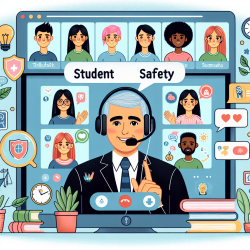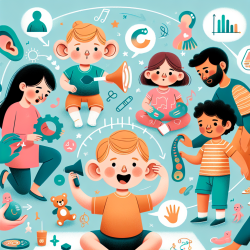Peer violence is a significant issue affecting children globally, with far-reaching consequences on their mental health and educational outcomes. A recent study titled "Preventing Peer Violence Against Children: Methods and Baseline Data of a Cluster Randomized Controlled Trial in Pakistan" highlights the prevalence of this issue and proposes interventions that can be implemented in schools. This blog post will explore the findings of this research and provide actionable strategies for practitioners to improve their skills in addressing peer violence.
The Scope of Peer Violence
The study conducted in Hyderabad, Pakistan, reveals alarming statistics: 94% of 6th-grade boys and 85% of girls reported being victimized by peers within four weeks. Similarly, 85% of boys and 66% of girls admitted to perpetrating violence. These figures underscore the urgent need for effective interventions.
Research-Based Interventions
The study evaluated a school-based intervention using sports and games designed to reduce peer violence and enhance mental health. The intervention was part of the Right To Play program, which focuses on four areas of youth development: physical, cognitive, social, and emotional components.
- Physical Development: Activities designed to improve physical fitness and teamwork.
- Cognitive Skills: Games that enhance strategic thinking and problem-solving abilities.
- Social Skills: Exercises that promote positive interactions and conflict resolution.
- Emotional Health: Activities that build self-esteem and emotional resilience.
Implementing the Findings
Practitioners looking to implement similar interventions can consider the following steps:
- Integrate Play-Based Learning: Incorporate structured play sessions into the school curriculum to engage students in meaningful interactions.
- Focus on Whole-School Approaches: Engage teachers, parents, and the community to create a supportive environment for students.
- Train Educators: Provide training for teachers on positive discipline strategies and child protection policies.
- Create Safe Spaces: Ensure that schools have adequate facilities for play and learning activities.
The Role of Online Therapy Services
Online therapy services like those provided by TinyEYE can play a crucial role in supporting these interventions. By offering remote access to mental health professionals, schools can address the emotional needs of students who experience or perpetrate violence. This support can be integrated into the broader strategy to reduce peer violence effectively.
This research provides valuable insights into addressing peer violence through school-based interventions. By implementing these strategies, practitioners can create safer environments for students and promote their overall well-being.










